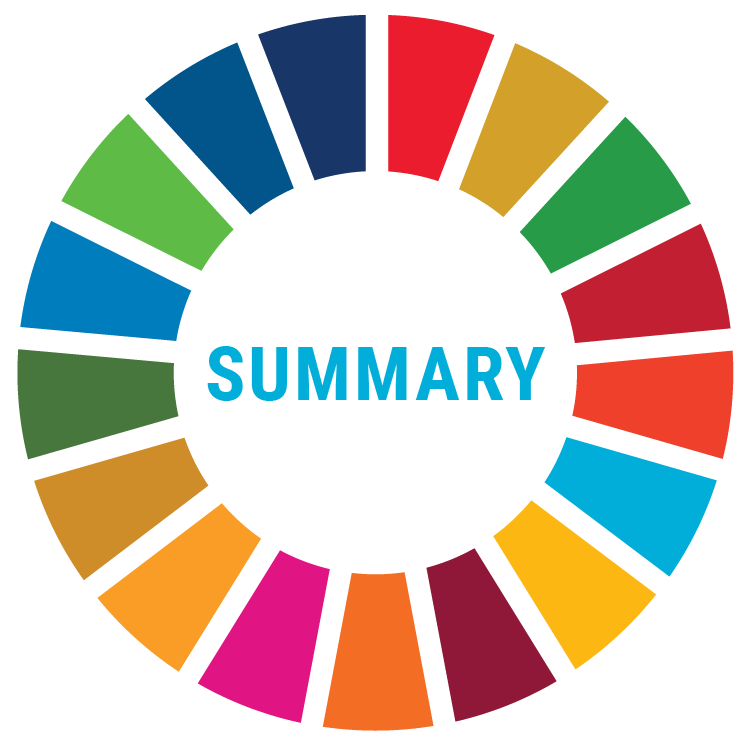Wellesley Institute, along with local, provincial, national and international organizations focuses on the social determinants of health. These are specific factors that have been demonstrated by research to influence our risk of illness and our likelihood of recovery should we get sick. We will continue our focus on the social determinants of health, but we also want to understand our general trajectory as a society. We want to think upstream to shine a light on how we are developing, to be able to see the course that we are taking and how changes in our general social environment change the social determinants in that environment. There is a general perception that things have been getting worse – we wanted to investigate the evidence for and against those ideas.
In this report, Wellesley Institute wanted to identify provincial changes over the past year that may impact the well-being of Ontarians.
Our approach is to use the United Nations 17 Sustainable Development Goals (SDGs) as the yardstick that we will measure any changes against. The SDGs have been agreed upon by all countries as a measure of good societal development and are applicable to higher income as well as lower income countries. The Canadian Government has embraced the SDGs.
The UN defines sustainable as “development that meets the needs of the present without compromising the ability of future generations to meet their own needs.”[i] Sustainable development calls for sustainable, inclusive and resilient policy and strategies for current and future inhabitants of the planet. This idea seeks to synergize three core interconnected elements: economic growth, social inclusion and environmental protection. The SDG framework is unique in that it calls for action by all countries, poor, rich and middle-income to promote prosperity while protecting the planet.[ii] This framework is useful because it allows national and subnational states, including those with highly advanced economies such as Ontario, to address objectives relative to their own baseline.
We will categorize the changes over the past year within the appropriate SDG, according to the targets and indicators that are associated with them. We acknowledge that some changes and announcements could be categorized under numerous SDGs, as there are implications to multiple areas of development. However, we will attempt to properly classify them to the best of our abilities based on each SDGs definition and intention. It is difficult to identify and classify all the changes that have happened, and we acknowledge that our data may not be completely comprehensive, but we believe that this approach gives us an indication of the trajectory Ontario is currently taking.
*Note: Changes and Announcements are accurate and reflective of policy changes up to August 30, 2019.
[i] Bruntland Commission. (1987). Our Common Future. Oxford University Press.
[ii] United Nations General Assembly. (2015). The 2030 Agenda for Sustainable Development. Retrieved June 28, 2019, from https://www.un.org/ga/search/view_doc.asp?symbol=A/RES/70/1&Lang=E.
Zero Hunger
End hunger, achieve food security and improve nutrition and promote sustainable agriculture
Good Health and Well-being
Ensure healthy lives and promote well-being for all at all ages
Quality Education
Ensure inclusive and equitable quality education and promote lifelong learning opportunities for all
Clean Water and Sanitation
Ensure availability and sustainable management of water and sanitation for all
Affordable and Clean Energy
Ensure access to affordable, reliable, sustainable and modern energy for all
Decent Work and Economic Growth
Promote sustained, inclusive and sustainable economic growth, full and productive employment and decent work for all
Industry, Innovation and Infrastructure
Build resilient infrastructure, promote inclusive and sustainable industrialization and foster innovation
Responsible Consumption and Production
Ensure sustainable consumption and production patterns
Sustainable Cities and Communities
Make Cities and human settlements inclusive, safe, resilient and sustainable
Life Below Water
Conserve and sustainably use the oceans, seas and marine resources for sustainable development
Life on Land
Protect, restore and promote sustainable use of terrestrial ecosystems, sustainably manage forests, combat desertification, and halt and reverse land degradation and halt biodiversity loss
Peace, Justice and Strong Institutions
Promote peaceful and inclusive societies for sustainable development, provide access to justice for all and build effective, accountable and inclusive institutions at all levels
Partnerships for the Goals
Strengthen the means of implementation and revitalize the global partnership for sustainable development
Synthesis
The sustainable development goals cover 17 areas, which we have covered in some detail. However, together they focus on three areas; economic, social and environmental. For progress to last, balanced improvements are required in all three areas. As a synthesis we have considered the trajectory Ontario has taken in the last year to try to better understand the sustainability of our progress.
